Did you know that the first five books of the Bible not only recount the origin of the world, but also contain the keys to understanding all of Scripture, from Genesis to Revelation?
What if I told you that everything you believe about God, humanity, sin, redemption, and the purpose of life has its roots in the Pentateuch?
Many read the Bible starting with the Gospels, but few realize that Without the Pentateuch, you cannot understand Jesus, his mission, or the depth of the gospel..
This five-book collection reveals the heart of God, his law, his grace, his covenant with humanity... and invites us to see history through eternal eyes.
In this article, you'll discover what the Pentateuch is, why it remains vital today, and how it can transform the way you read the Bible, live your faith, and make biblically informed decisions.
Prepare to rediscover the foundations of divine revelation.
It all starts here.
Introduction to the Pentateuch
What if you were told that the first five books of the Bible not only narrate the origin of the universe, but also reveal God's heart, his justice, his mercy, and his eternal plan for humanity?
The Pentateuch is much more than a biblical introduction.
It is the doctrinal, historical and spiritual foundation upon which all Scripture is built.
Here you'll discover why these five books have guided generations, shaped civilizations, and continue to transform lives today.
What is the Pentateuch and why is it so important?
The Pentateuch is the set of the first five books of the Bible: Genesis, Exodus, Leviticus, Numbers and Deuteronomy.
It is considered the doctrinal basis of the Judeo-Christian faith.
1. Foundation of biblical revelation
The first great theological truths are found in the Pentateuch: the creation of the world, original sin, the election of Israel, and the revelation of divine law.
2. Guide to the identity of the people of God
It tells how God formed a nation, gave it laws, purpose and promise.
It is the story of the covenant between God and his people.
3. Gateway to all Scripture
Understanding the Pentateuch allows us to correctly interpret the rest of the Bible.
Jesus himself referred to these books when explaining his mission (Luke 24:44).
Etymological meaning of “Pentateuch”
The word “Pentateuch” comes from the Greek penta (five) and roofs (roll, volume), which literally means “five rolls” either “five books”.
1. Greek term, Hebrew content
Although the name is Greek, the content is deeply Hebrew, and corresponds to what in Judaism is known as the Torah.
2. Practical and organizational name
The books were grouped as a literary and theological unit, used by both Jews and Christians.
3. Historical tradition
Since ancient times, these five books have been considered as a whole, forming the central core of revealed Scripture.
Relationship of the Pentateuch to the rest of the Bible
The Pentateuch not only initiates the biblical narrative, but also establishes the essential themes that will be developed in the rest of Scripture.
1. Basis of the Old Testament
The historical, prophetic, and wisdom books are built upon the events, laws, and promises contained in the Pentateuch.
2. Anticipation of the New Testament
The Pentateuch announces redemption, the figure of the Messiah, and the need for a salvation that is only fulfilled in Christ.
3. Constant reference
Prophets, apostles and Jesus himself quote the Pentateuch as the highest authority.
It is the interpretive framework for every biblical reader.
To understand the Pentateuch is to understand the character of God, the human condition, and the redemptive plan that connects from Genesis to Revelation.
It is, without a doubt, the heart of divine revelation.
Composition of the Pentateuch
The Pentateuch is not just a collection of five books; it is a literary and spiritual unity that reveals the origin of the universe, God's covenant with humanity, and the birth of Israel as a chosen people.
Here I explain its structure and theological depth:
The five books that comprise it: Genesis, Exodus, Leviticus, Numbers and Deuteronomy
Each of these books fulfills a specific purpose within God's redemptive plan.
1. Genesis – The Book of Beginnings
It tells of the creation of the world, the fall of mankind, the flood, the Tower of Babel, and the call of Abraham.
It establishes the foundations of the covenant and the genealogy of the people of Israel.
2. Exodus – Liberation and Law
It describes slavery in Egypt, liberation through Moses, and the giving of the Law on Mount Sinai.
It marks the beginning of the people as a nation under divine authority.
3. Leviticus – Holiness and Worship
Contains instructions on sacrifices, priesthood, purity and festivities.
It reflects God's desire to dwell among a holy people.
4. Numbers – Trials and faithfulness in the desert
It narrates Israel's journey through the desert, its rebellions, censuses and tribal organization.
It shows God's faithfulness despite human disobedience.
5. Deuteronomy – Renewal of the covenant
It is a recapitulation of the law before entering the promised land.
Moses exhorts them to obey God and reminds them of his promises and warnings.
Thematic and theological unity of the whole
Although each book has its own focus, they all share a unity of purpose: to reveal the covenant God and his plan to redeem humanity.
1. A continuous narrative
From creation to the prelude to the conquest of Canaan, the Pentateuch presents a coherent history with a theological thread.
2. The centrality of the pact
God's covenant with Adam, Noah, Abraham, Moses, and the people forms the backbone of God's message.
3. Constant themes
God as Creator and Lawgiver, holiness, justice, sin, grace, redemption, and obedience as a response to divine revelation.
The Pentateuch in the Jewish and Christian traditions
Both traditions recognize the Pentateuch as the cornerstone of faith, although with different approaches.
1. In Judaism
Known as the Torah, it is the most sacred text.
It is read publicly in synagogues and forms the basis of halacha (Jewish law).
It is inseparable from identity, liturgy and community life.
2. In Christianity
It is the first section of the Old Testament.
Although Christ fulfills and surpasses the Law, the Pentateuch remains vital to understanding sin, sacrifice, justice, and redemption.
3. Point of convergence
Both traditions honor it as divine revelation.
In it are the foundations of the monotheistic faith and the promise of the Messiah.
Authorship of the Pentateuch
For centuries, Moses has been considered the author of the Pentateuch, although not without debate.
Here we explore the evidence and theories surrounding this key issue:
Is Moses the author of the Pentateuch?
Jewish and Christian tradition has held that Moses wrote the five books.
1. Biblical testimony
Numerous passages attribute the law and writings to Moses (Exodus 24:4, Deuteronomy 31:9).
Jesus himself supports this (John 5:46–47).
2. Central figure and eyewitness
Moses lived through the events narrated from Exodus onward.
He received direct revelations from God and wrote legal and ritual instructions.
3. Limitations
Some later texts (such as the death of Moses in Deuteronomy 34) would have been added by later editors, without contradicting his overall authorship.
Internal and external evidence of its authorship
There are grounds for Mosaic authorship both within and outside the Bible.
1. Internal
Narrative consistency, use of expressions typical of the time of Moses, and legal and cultural structure consistent with the Egyptian context of the second millennium BC
2. External
Historical evidence from Jewish tradition (Talmud, Philo, Josephus) and early Christians affirms him as the author.
Even the Dead Sea Scrolls reflect this view.
3. Doctrinal continuity
The teachings of the Pentateuch are deeply connected to the ministry of Moses, his relationship with God, and his leadership over Israel.
Modern theories of composition (documentary hypothesis)
Since the 19th century, theories have emerged that question the sole authorship of Moses.
1. Documentary hypothesis (JEDP)
He proposes that the Pentateuch was written by different sources (Yahwist, Elohist, Deuteronomist and Priestly), combined centuries later.
2. Criticism and defense
This theory is debated.
Its defenders rely on repetitions and stylistic differences.
Its critics point to the lack of archaeological evidence and the theological disarticulation by fragmenting the texts.
3. Balanced posture
Many scholars today recognize that Moses may have been the primary author, with possible later inspired editions that do not affect the veracity or divine inspiration of the text.
The question of authorship should not divert attention from the profound message of the Pentateuch.
The essential thing is not only who wrote it, but who inspired him… and for whom it was written: for anyone who wants to know the true God.
Main purposes of the Pentateuch
The Pentateuch was not written merely to record ancient history, but to reveal the essence of the God who acts, reveals himself, and redeems.
Here I explain their fundamental purposes and why they are still relevant today:
Founding the identity of the people of God
The Pentateuch establishes who the chosen people are, why they were chosen, and how they should live.
1. Origins and genealogy
From Adam to the twelve tribes of Israel, the lineage of faith is detailed.
God forms a people with a name, land and promise.
2. National and spiritual constitution
Laws, covenants, and detailed instructions give the people of Israel a unique identity, distinct from other nations.
3. Mission and purpose
Israel was not chosen for merit, but to be a light to the nations (Genesis 12:3).
The Pentateuch explains that call.
Reveal the character and commandments of God
The Pentateuch does not only talk about God; God speaks in it.
1. Holiness and Justice
God presents himself as holy, just, merciful and faithful.
His law reflects his perfect character.
2. Relationship with his people
Through the covenants, God shows that he is not a distant God, but a close one, who desires communion.
3. Moral and ritual instructions
Laws are not just external norms, but ways to reflect the divine character in daily life.
Show the redemptive plan from creation
The Pentateuch anticipates the need and promise of redemption from the first chapters.
1. The fall and its consequences
Genesis 3 reveals the entrance of sin and the promise of a Redeemer (the “seed of the woman”).
2. Sacrifice and substitution
From Abel to the Levitical sacrifices, it is established that “without the shedding of blood there is no forgiveness” (Hebrews 9:22).
3. Promise of the Messiah
God promises a descendant of Abraham, a Prophet like Moses (Deuteronomy 18:15) and an eternal Kingdom that only Christ can fulfill.
Summary and key themes of each book
Each book of the Pentateuch is like a cornerstone within the building of divine revelation.
Here I present a concise and in-depth summary of each one:
Genesis – The origin of everything
It all begins here: the universe, life, sin… and the promise of salvation.
- Creation in six days and rest on the seventh
- Fall of the human being and universal consequences
- Covenants with Noah, Abraham, Isaac and Jacob
- Story of Joseph and the arrival in Egypt
Key topics: creation, sin, grace, faith, promise, genealogy.
Exodus – Liberation and covenant with God
God frees his people from slavery and establishes a formal relationship with them.
- Liberation from Egypt through signs and miracles
- Easter as a redemptive symbol
- Giving of the Law at Sinai
- Instructions for the tabernacle and worship
Key topics: redemption, law, presence of God, covenant, freedom.
Leviticus – Laws of Holiness and Worship
A manual of spiritual purity for living in the presence of a holy God.
- Sacrificial system for atonement of sin
- Functions of the Levitical priesthood
- Sacred festivals and purity laws
- Holiness Code for Daily Living
Key topics: holiness, worship, atonement, purity, sacrifice.
Numbers – Trials and Leadership in the Desert
It recounts Israel's pilgrimage, marked by complaints, rebellions, and God's faithfulness.
- Census of the people before and after the desert
- Rebellions and divine punishments
- Divine guidance through cloud and fire
- Preparation to enter the Promised Land
Key topics: faith vs. unbelief, discipline, leadership, faithfulness.
Deuteronomy – Renewal of the Covenant and Call to Obedience
It is Moses' last speech before his death, a passionate summary and exhortation.
- Review of history and law
- Call to obedience and fidelity
- Blessings and curses of the covenant
- Preparation for the conquest of Canaan
Key topics: memory, obedience, blessing, renewal, leadership.
The Pentateuch is not just history: it is the basis of biblical thought, the platform for the prophetic message, and the foundation of Christian hope.
To study it is to enter into the very heart of God.
Central theological themes in the Pentateuch
The Pentateuch presents not only narratives and laws, but fundamental theological truths that reveal the character of God, the human condition, and the divine plan for history.
Here I explain the key themes that make it the foundation of all biblical theology:
God as Creator and Legislator
From the beginning, God reveals himself as the source of all life and authority.
1. Sovereign Creator
In Genesis 1, God creates everything with power and order.
There is no conflict of gods nor mythological chaos: there is only one God, good and almighty.
2. Owner of history and nations
God not only creates, but guides history with purpose.
He leads people and nations to fulfill his will.
3. Lawgiver
In Exodus and Leviticus, God sets standards that reflect his character.
He does not impose arbitrary rules, but paths of life, justice and holiness.
Sin and the need for redemption
One of the great axes of the Pentateuch is to show how sin separates… and how God seeks to restore.
1. The Fall of Man
Genesis 3 narrates the disobedience of Adam and Eve, the origin of moral and spiritual corruption.
2. Expansive effects of sin
The violence of Cain, the flood, the Tower of Babel, the idolatry of Israel: all reflect a humanity in rebellion.
3. Need for redemption
God provides temporary forms of atonement (sacrifices) that point to the need for a definitive solution: Christ.
The covenant between God and Israel
The covenant is the relational structure that defines the interaction between God and his people.
1. Covenant with Abraham
It includes the promise of land, descendants and blessing for all nations (Genesis 12, 15, 17).
2. Mosaic Covenant
At Sinai, God gives the law as part of the agreement with Israel (Exodus 19–24).
3. Conditionality and fidelity
God demands obedience, but also shows mercy in the face of repentance.
The pact is bilateral, but God is always faithful to his promise.
The role of the law in the life of the believer
The law in the Pentateuch is not just legalism: it is revelation, instruction, and the way of life.
1. Reveals the character of God
The law shows what God loves and hates.
It reflects his justice, holiness and compassion.
2. Establishes social and spiritual order
It regulates worship, relationships, economics, and social justice.
Israel was to be a model of a just nation.
3. Anticipate grace
The law points out sin, but also shows the need for a mediator.
It prepares us to understand the redemptive work of Christ.
The Pentateuch and the history of the people of Israel
The Pentateuch not only transmits doctrine: it also tells the story of a people who were called, formed, tested, and loved by God.
It is your birth certificate and your identity manual.
Foundation of Israel's national and spiritual identity
Before being a nation with land and a king, Israel was a people with a calling and purpose.
1. From slaves to free people
The story of the Exodus marks the birth of Israel as a nation under God's guidance.
2. A different town
Laws, customs and rites separated them from pagan nations.
They were “saints,” that is, set apart for God.
3. Identity based on the covenant
Israel was not just an ethnic group: it was a people covenanted with God, with unique responsibilities and promises.
Chronology and historical context of the events narrated
The Pentateuch is rooted in specific historical events.
1. Patriarchs in a Mesopotamian context
Abraham, Isaac, and Jacob lived in a world dominated by kingdoms such as Ur, Egypt, and Canaan.
2. Exodus and Egypt
The exodus is historically situated in the second millennium BC, with cultural parallels in Egyptian laws and structures.
3. Desert and formation
The 40 years in the desert were a time of spiritual, social and liturgical formation.
The Exodus as a central event in the Jewish faith
The Exodus is the founding act of Israel and a key symbol of liberation throughout the Bible.
1. Liberation from the Egyptian yoke
God demonstrates his power and faithfulness by rescuing his people with a strong hand.
2. Institution of Easter
This event commemorates redemption and is an essential part of Israel's spiritual calendar.
3. Eternal symbol of salvation
The prophets, the psalms, and Jesus himself refer to the Exodus as a paradigm of God's saving power.
The Pentateuch not only recounts sacred history, but constructs a narrative of redemption, identity, law, and hope.
To understand it is to discover how God forms a people… to dwell with him and fulfill his eternal purpose.
Use of the Pentateuch in the New Testament
The New Testament cannot be fully understood without the Pentateuch.
Jesus, the apostles, and the evangelists constantly cite it as a basis of authority, revelation, and fulfillment.
Here I explain how the Pentateuch fits into the gospel message:
Direct references to Moses and the Law
Moses is a central figure in the New Testament, not only as a legislator, but as a prophet who announced the Messiah.
1. Jesus and the Gospels
Jesus quoted the Mosaic commandments (Matthew 5:21–48), claimed that Moses wrote about Him (John 5:46), and used the law to teach about love for God and neighbor (Matthew 22:37–40).
2. Apostolic discourses
Stephen, Peter and Paul appeal to Moses to demonstrate that Jesus is the fulfillment of the divine plan (Acts 7:13).
3. Permanent authority
The Law is recognized as the word of God, although reinterpreted in the light of the gospel.
How Jesus interpreted and fulfilled the Pentateuch
Jesus did not abolish the Law, but fulfilled it (Matthew 5:17).
His life, death and teaching show the true purpose of the Pentateuch.
1. Prophetic fulfillment
Jesus is the Passover Lamb (Exodus 12), the Prophet like Moses (Deuteronomy 18:15) and the promised seed (Genesis 3:15).
2. Ethics of the Kingdom
Jesus internalizes the Law: it is not enough not to kill, we must forgive.
It is not enough to not commit adultery, you must have purity of heart.
3. Replacement of the sacrificial system
With his sacrifice, Jesus fulfills the purpose of the Levitical sacrifices and opens a new and living way (Hebrews 10:1–14).
Law and grace in Paul's teaching
Paul honors the law, but shows that justification comes only by grace, through faith.
1. The law as a revelation of sin
According to Romans 7, the law makes evident our need for redemption.
She is holy, just and good, but she cannot save.
2. Justification by faith
In Galatians and Romans, Paul states that Abraham was justified by believing, not by works of the law (Genesis 15:6).
3. Freedom in Christ
Grace does not abolish the moral law, but it frees the believer from the curse of not being able to fully fulfill it (Galatians 3:13).
Interpretations of the Pentateuch over time
Throughout history, the Pentateuch has been the subject of diverse interpretation, commentary, and application according to cultures, theological schools, and eras.
Here I explain the main currents:
Rabbinic and Midrashic Jewish Perspectives
Judaism has been the custodian of the Pentateuch for millennia, developing profound and varied interpretations.
1. Talmud and Mishnah
Key works of the rabbinic tradition interpret the Torah orally and legally, applying it to all aspects of life.
2. Midrash
Narrative commentary that seeks the deep and spiritual meaning of the texts.
Uses parables, symbolism and ethical application.
3. Torah as identity
Beyond exegesis, Mosaic Law defines the daily life, festivals, diet, and morals of the Jewish people.
Patristic, Reformed, and Current Christian Approaches
The Christian church has read the Pentateuch in the light of Christ and with progressive approaches according to the times.
1. Church Fathers
Augustine, Origen and others saw in the Pentateuch figures and types of Christ, such as in the sacrifice of Isaac or the manna in the desert.
2. Protestant Reformation
Martin Luther and John Calvin emphasized the law as a mirror of sin, but also as a moral guide for Christian living.
3. Contemporary studies
Contemporary theologians explore the relevance of the Pentateuch in areas such as social justice, the environment, spiritual leadership, and public ethics.
Literal, symbolic and typological interpretation
Interpretation methods vary, and all enrich the understanding of the text.
1. Literal
It focuses on the historical and grammatical meaning of the text.
Seeks to understand the original meaning for its audience.
2. Symbolic
Explore symbols, such as the bronze serpent, the tabernacle, or the ark of the covenant, to extract spiritual truths.
3. Typological
Study how people, events, and elements of the Pentateuch prefigure Christ and his redemptive work.
Examples: Adam as a type of Christ, manna as a type of the Bread of Life, Moses as an intercessor.
Throughout the centuries, the Pentateuch has been read with reverence, depth, and practical application.
It is a living text, which speaks today… if we know how to listen to it with eyes opened by the Spirit.
The Pentateuch in the life of the believer today
Although it was written more than 3,000 years ago, the Pentateuch remains relevant for every Christian who desires to understand God's character, his eternal principles, and his purpose for humanity.
Here I explain why its study is not only valuable, but essential in our days.
Why should we study it even today?
The Pentateuch is not an “ancient” book that has been left behind, but a living and permanent revelation.
1. Basis of the Gospel
It helps us understand why we need a Savior, how God deals with sin, and what it means to live in covenant with Him.
2. Know God more deeply
It reveals to us who God is in his holiness, faithfulness, justice and mercy.
It is an initial portrait of his immutable character.
3. Root of the entire Bible
From Genesis to Revelation, the themes of the Pentateuch appear again and again.
It is the platform for understanding the rest of the Scriptures.
Practical applications for the modern Christian
The Pentateuch is not just history and ceremonial laws: it is full of teachings applicable to our lives today.
1. Ethics and justice
The laws of Leviticus and Deuteronomy inspire us to live with integrity, social justice, and compassion for the vulnerable.
2. Spiritual discipline
The rhythms of prayer, worship, sanctification, and obedience teach us how to live in constant communion with God.
3. Faith in the promise
Like Abraham, we are called to walk by faith, trusting in God's faithfulness even when we don't see the whole picture.
4. Resistance to sin
The stories of Cain, the flood, and idolatry in the desert teach us to resist temptations with reverent fear and divine dependence.
The Pentateuch as the basis for a biblical worldview
A biblical worldview begins with a solid understanding of the early books of the Bible.
1. Origin and purpose of the human being
Genesis answers the deepest questions of existence: Who am I? Where did I come from? Why am I here?
2. Understanding good and evil
Sin is not just a behavior, but a break with God that needs redemption.
That shapes our worldview.
3. Relationship with others and creation
God establishes principles of stewardship, community, justice, and environmental care from the very first chapters.
4. History with a purpose
The Pentateuch teaches that history is not a meaningless cycle, but a redemptive narrative culminating in Christ.
Recommended books on the Pentateuch (Amazon)
For those who want to delve deeper, reflect, and teach with substance, here are three highly recommended books, available on Amazon:
“Exploring the Pentateuch” – Gordon Wenham
An excellent resource for students and teachers who wish to understand the theological and literary background of the Pentateuch.
- Academic clarity with a pastoral focus.
- In-depth analysis of the themes, structure, and purpose of each book.
- Accessible to non-specialist readers, but rich in content.
“The Pentateuch as narrative” – John Sailhamer
Ideal for those seeking a unified view of the Pentateuch as a coherent, God-directed history.
- The narrative thread that connects all the books stands out.
- It provides a unique literary and theological vision.
- Useful for preachers, group leaders, and theologians in training.
“Hispanic World Biblical Commentary: Pentateuch” – Justo L. González
Extensive and contextualized commentary from a Latin American perspective.
- Practical and pastoral approach.
- Includes contemporary applications for the church.
- Written by one of the most renowned theologians in the Hispanic world.
These books not only teach, but also awaken a new passion for the biblical text.
To delve deeper into the Pentateuch is to walk closer to the God who speaks, saves, and guides from the beginning.
For Christian entrepreneurs who want to impact with purpose
If you believe your business is a calling from God and not simply a source of income, this section is for you.
Entrepreneurship with faith is more than possible: it is a powerful way to honor God with creativity, service, and excellence.
🚀 Launch your website or platform with NippyLaunch.com
Do you want to create a website, SaaS, or online store without relying on secular platforms that don't share your values?
NippyLaunch is designed for Christian entrepreneurs like you.
- Includes everything you need: hosting, professional templates, premium plugins, and technical support.
- Ideal for businesses, ministries, Bible schools, and digital content.
- Designed to launch quickly, without sacrificing quality or integrity.
📈 Attract more customers without losing your values CleefCompany.com
Grow your business with digital marketing campaigns that respect your principles.
There is no manipulation or deception here: just clean and effective strategies.
- Facebook Ads, Google Ads, and targeted campaigns with an ethical approach.
- Free 30-day plans so you can try them risk-free.
- Ideal for entrepreneurs, churches, NGOs, and professionals who want purposeful results.
🧮 Make strategic decisions with CalculatorCCH.com
Over 600 free calculators for finance, business, health, productivity, and more.
An indispensable resource for those who steward what God has entrusted to them with wisdom.
- Margin, investment, pricing, budgeting, and time management calculators.
- No intrusive ads or mandatory registration.
- Perfect for making practical decisions, with biblical management principles.
Don't undertake like the world.
Start with purpose, with faith… and with tools created to glorify God in your daily work.
Cultural and religious impact of the Pentateuch
The Pentateuch has influenced not only religion, but also the history, thought, and social structures of many cultures.
Here I explain its scope beyond the ecclesiastical sphere.
Influence on Western thought and modern laws
Many laws and principles of today's world have their roots in the commandments and structures of the Pentateuch.
1. Law and justice
The idea that all are equal before the law, the protection of the most vulnerable, and the importance of truthful witness are deeply inspired by Mosaic Law.
2. Education and literacy
The command to teach Torah to children (Deuteronomy 6:7) motivated centuries of communal literacy in the Jewish people and later in Christianity.
3. Work ethic and rest
The six-day work week and the seventh-day rest come from the creation story.
Its place in Jewish and Christian liturgy
The Pentateuch occupies a sacred and permanent space in both Jewish and Christian worship.
1. Weekly public reading
In Judaism, a fragment (parasha) of the Pentateuch is read each week, completing the cycle each year.
2. Christian preaching
Many sermons and Bible studies are based on texts from the Pentateuch, which offer timeless principles.
3. Celebrations and symbolism
Easter, Pentecost, Tabernacles… all these biblical feasts are based on commands from the Pentateuch, and many find their fulfillment in Christ.
The Pentateuch as the foundation of biblical ethics
The moral teachings of the Pentateuch establish the foundations of a God-centered ethic.
1. Human dignity
Human beings are created in the image of God (Genesis 1:26), which underpins the ethics of respect and equality.
2. Personal and community responsibility
The law teaches that our decisions have consequences, and that we must act with justice, love, and fear of God.
3. Compassion and social justice
The Pentateuch protects orphans, widows, and strangers, establishing a standard of active love toward one's neighbor.
Criticisms, challenges and defense of the Pentateuch
Despite its value, the Pentateuch has been the subject of academic and cultural criticism.
Here I present the main challenges and how to respond to them with faith and clarity.
Criticisms from modern textual criticism
Since the 19th century, theories have emerged that question its unity, authorship and historicity.
1. Documentary hypothesis
He argues that the Pentateuch was written by multiple sources (J, E, D, P) in different centuries.
2. Stylistic and repetitive disagreements
Some see in the repetitions and changes of names (Yahweh / Elohim) indications of multiple authors.
3. Historical questions
The lack of direct archaeological evidence has led some scholars to doubt the Exodus and other key narratives.
Conservative arguments in defense of inspiration and unity
Many scholars and believers defend the divine inspiration and coherence of the text.
1. Internal testimony
The Bible itself attributes the Law to Moses in multiple passages, and Jesus validates this authorship.
2. Thematic and theological unity
Despite varying styles, the message and structure of the Pentateuch show a remarkable spiritual coherence.
3. Indirect archaeological evidence
Cultural elements, names, practices, and legal forms coincide with what we know from the time of Moses.
How to respond to objections with faith and reason
Faith is not afraid of questions, but it must be accompanied by study, wisdom, and trust in God.
1. Balanced apologetics
It is valid to study critically, but with reverence for the text and openness to the testimony of the Spirit.
2. Solid theological training
Studying the Pentateuch in its biblical, historical, and literary context allows us to respond clearly to skeptics.
3. Spiritual value above technical debate
Even if there are debatable details, the message of the Pentateuch continues to transform lives.
His spiritual truth is eternal.
Frequently Asked Questions about the Pentateuch
Why is it called “Pentateuch”?
It comes from Greek penta (five) and roofs (rolls or books).
It refers to the first five books of the Bible.
What is the difference between the Pentateuch and the Torah?
Pentateuch is the Greek term.
Torah is the Hebrew name, meaning “instruction” or “law.”
Both refer to the same five books.
Is Moses really the author of these books?
Jewish and Christian tradition support this.
Although some sections may have been edited after his death, Moses is recognized as the main author.
What relevance does the Law of Moses have today?
It reveals to us the character of God, the gravity of sin and the need for grace.
Although Christ fulfilled the Law, its ethical principles remain valid.
How to study the Pentateuch effectively?
- Read it in order, looking at the narrative and the law.
- Use reliable Bible commentaries.
- Look for connections with Christ and the gospel.
What role does the Pentateuch play in Christianity?
It is the doctrinal basis of the Christian faith.
It establishes the concept of creation, fall, covenant, redemption and law that are fulfilled in Christ.
How does the Pentateuch connect with the gospel of Jesus?
Jesus is the seed promised to Abraham, the new Moses, the true Passover Lamb and the fulfillment of the Law and the Prophets.
It all begins in the Pentateuch… and culminates in Christ.
Conclusion
The Pentateuch is not simply a collection of ancient books.
It is the voice of God establishing the foundations of creation, sin, covenant, and redemption.
It is the theological root of the entire Bible and the heart that beats behind every subsequent page.
Without Genesis, we do not understand our origin.
Without Exodus, we do not understand liberation.
Without Leviticus, we do not value holiness.
Without Numbers, we do not recognize divine faithfulness.
Without Deuteronomy, we forget the call to obey with love.
Studying it is not optional for the Christian: It is essential if we want to truly know God and live according to his purpose..
Here is wisdom to govern, worship, manage, forgive, and move forward… from a Kingdom perspective.
Now I ask you:
What surprised you most when you rediscovered the Pentateuch?
Leave it in the comments.
Your reflection may inspire others to delve into this powerful part of God's Word.
Discover How the Bible Can Transform Your Life
- Bible Study – explore the teachings of the Bible and find answers to life’s challenges.
- Fundamental Beliefs – delves into the principles that have guided millions through the centuries.
- Spiritual Growth – Strengthen your faith with studies designed to bring you closer to God.

Discover How the Bible Can Transform Your Life
- Bible Study – explore the teachings of the Bible and find answers to life’s challenges.
- Fundamental Beliefs – delves into the principles that have guided millions through the centuries.
- Spiritual Growth – Strengthen your faith with studies designed to bring you closer to God.



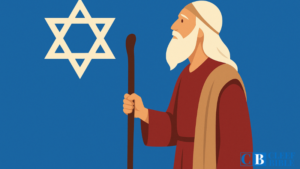


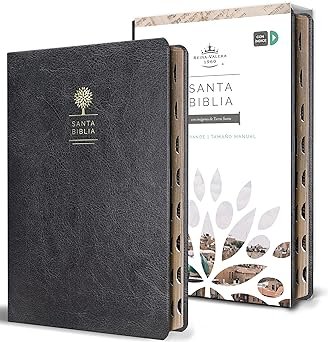



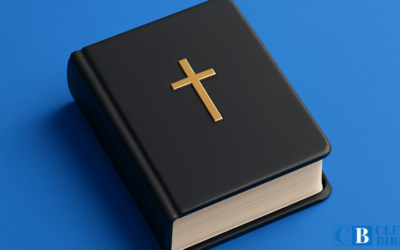




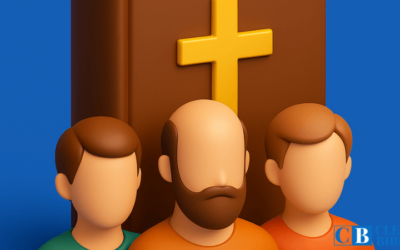
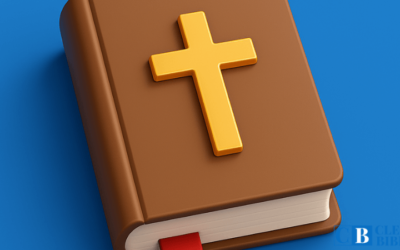
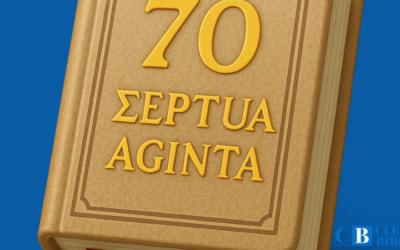

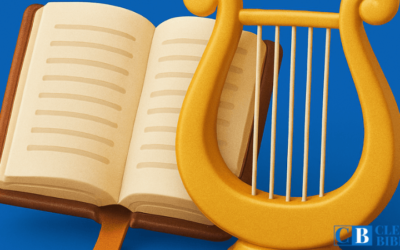




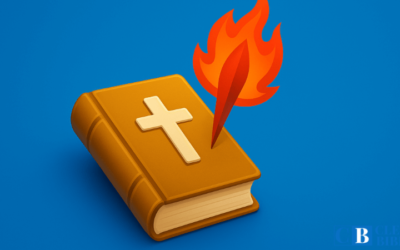
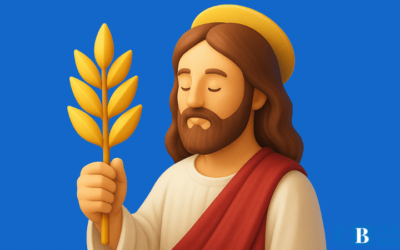

0 Comments